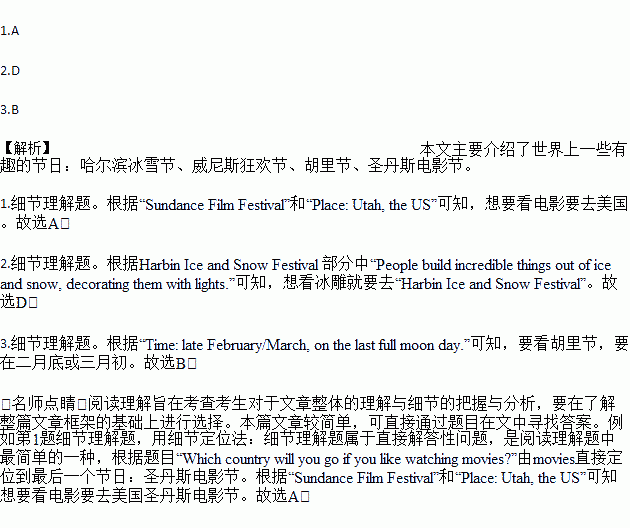题目内容
During the cold winter days, there are some interesting festivals in the world. Look at the following ones.
Harbin Ice and Snow Festival
Place: China
Time: January 5 to February 5
People build incredible things out of ice and snow, decorating them with lights.
The Carnival of Venice
Place: Italy
Time: between February and March
One of the most beautiful festivals in the world, people wear masks and elaborate costumes to hide differences among classes, and there are contests for the best costumes.
Holi Festival
Place: India
Time: late February/ March, on the last full moon day
Hindus and Sikhs, in India, Nepal, and Sri Lanka celebrate the main day of this incredibly fun 16-day festival by throwing colored powder and water at each other.
Sundance Film Festival
Place: Utah, the US
Time: end of February
The largest independent film festival in the US. Watch both feature films and shorts. You need to buy a ticket.
1.Which country will you go if you life watching movies?
A. America B. China
C. India D. Italy
2.Which festival may you go If you want to see sculptures made of ice?
A. Sundance Film Festival. B. The Carnival of Venice.
C. Holi Festival. D. Harbin Ice and Snow Festival.
3.When can you enjoy Holi Festival?
A. In early January B. In late February
C. In early March D. In late January

